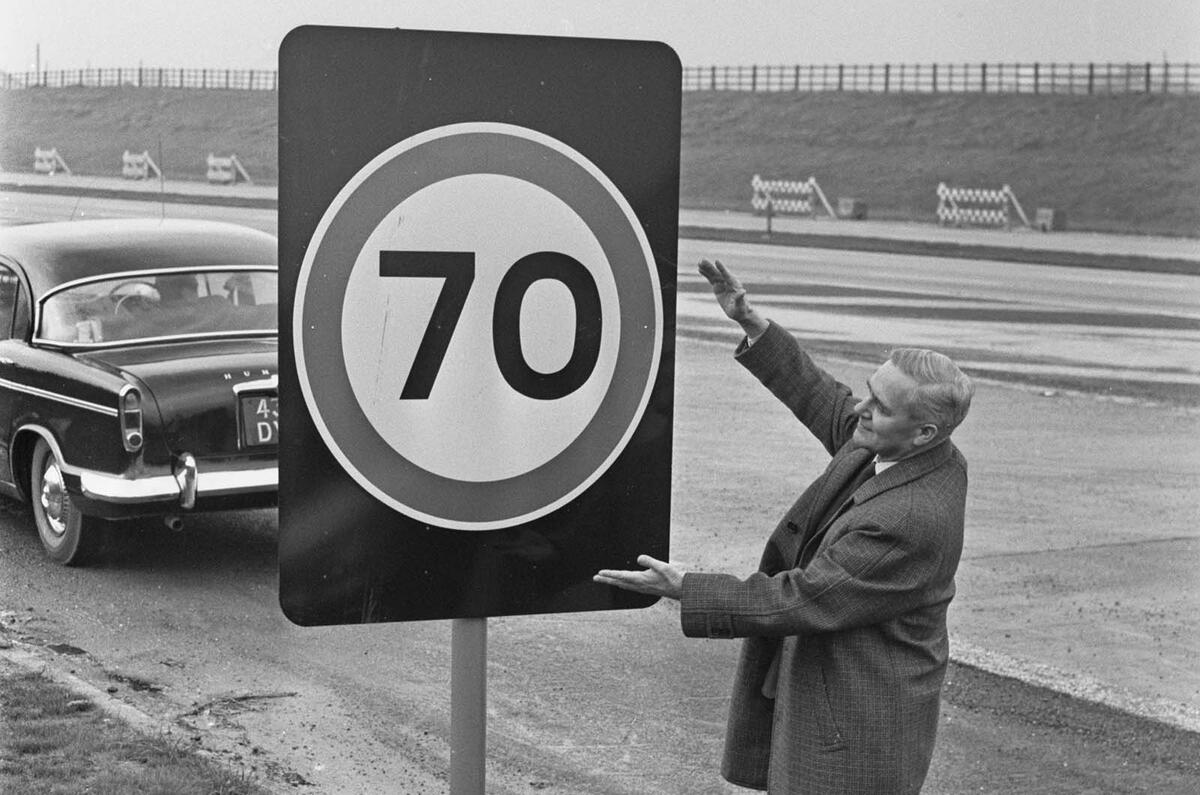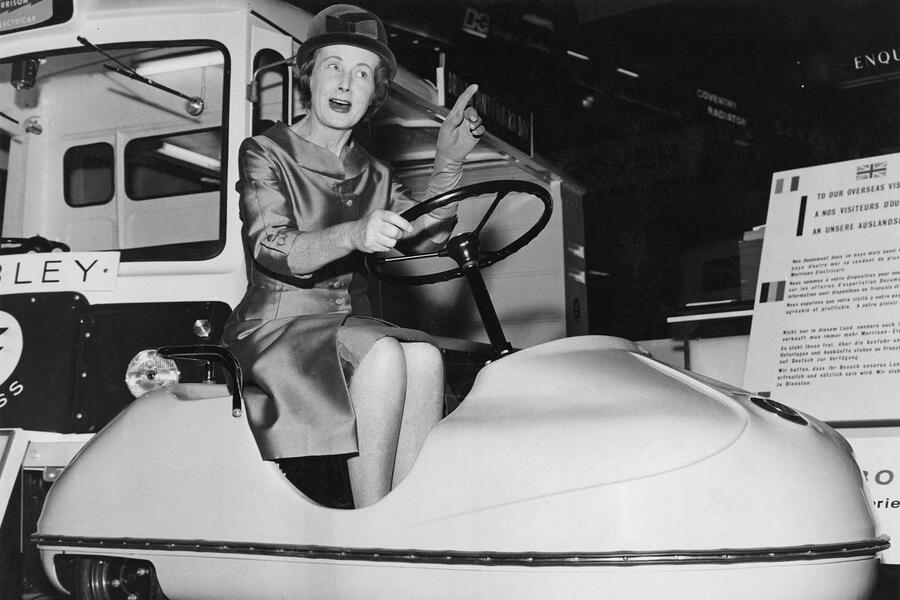“Since long before Britain’s first motorway opened in 1958, pleas for an upper speed limit on them have been heard with depressing regularity,” we sighed 58 years ago.
“Now the matter has come up again, and this time it’s [government body] the National Road Safety Council which has reportedly proposed a limit of between 50mph and 70mph after dark.”
“Quite how this has arisen from a series of disastrous concertina accidents [on the M6] when drivers were hampered by fog is difficult to understand,” we continued.
Indeed, the local chief constable had admitted on television that the speeds involved hadn’t been high – less than 30mph, in fact.
Autocar Archive returns: 128 years of magazines available online
“As regular users of British motorways know, there’s no need for a limit,” we asserted, citing drivers bunching up and staring at their speedometers too much as negative potential consequences.

We were obviously horrified, then, when Labour’s transport minister, Tom Fraser, “jumped in with both feet” and imposed a general speed limit of 70mph and a 30mph one in foggy conditions on a four-month trial basis.
“Why has this been done?” we asked. “One answer is that no one knows for certain, after years of talk and experiment, whether such a limit will reduce the number or severity of accidents. This [trial] may produce some valuable information.
“Another answer may be that a government whose main claim to fame in the transport field so far has been to add 6d a gallon on petrol and slow down road building felt compelled to make some dramatic move or other.






Join the debate
Add your comment
I don't get this, what's the article saying? All I ever hear is people saying what not to do, never what you should do. Come on Kris, tell us what Autocar's position was. " We predicted it would lead to people sitiing in the fast lane not prepared to budge" Yeh, yeh, yeh... What was Autocars stance at the time?
The need to explain that B. Castle doesn't drive says everything. What has the ability to drive got to do with safety and taking advice? How many new cars have Autocar's journalists bought yet they give us advice on how to buy them!
So is Autocar saying that there should have been no speed limit? It was OK to drive up and down the M1 at 120mph in a death trap?
Lets go back in time to 1965. Seatbelts weren't mandatory, in fact it wasn't until 1966 ( the same Mrs Castle ) who mandated seatbelt fixings be standard in cars. It wasn't until 1983 the wearing of seatbelts became mandatory. Why did it take 19 years? Because there was opposition to it. Was Autocar one of those who opposed it?
Cars didn't even have headrests. If you were involved in a high speed accident, chances were it was fatal. I'd have thought it a positive a 70mph speed limit was introduced. Well done Barbara. The speed limit was introduced as a means to protect lives. I find it incredible anyone could see that as a negative.
Didn't road deaths then increase as more M-ways were built?, before we had A roads which weren't as busy by the fact there were less cars on the road?,amazing facts like in one year in the US more people were killed on the roads there than the Korean War!, that didn't mahe much difference to drivers, so it's 70mph anniversary, we've still got bad driving, only way to stop this is an AI car control, systems that react to conditions and monitor driver input, a system that follows the correct speeds,yes, takes the human interface out of driving.
Nope. Motorways are our safest roads. The real death traps were roads such as the A74 dual carriageways. Making right turns on high speed roads is and always was insane.
Interestingly this came in 1 year before the all time peak in peacetime road deaths in the UK.
Although it appears to be a myth that the wartime blackout caused a surge in road deaths, as the figures were not signficantly higher than those prior to the second world war.